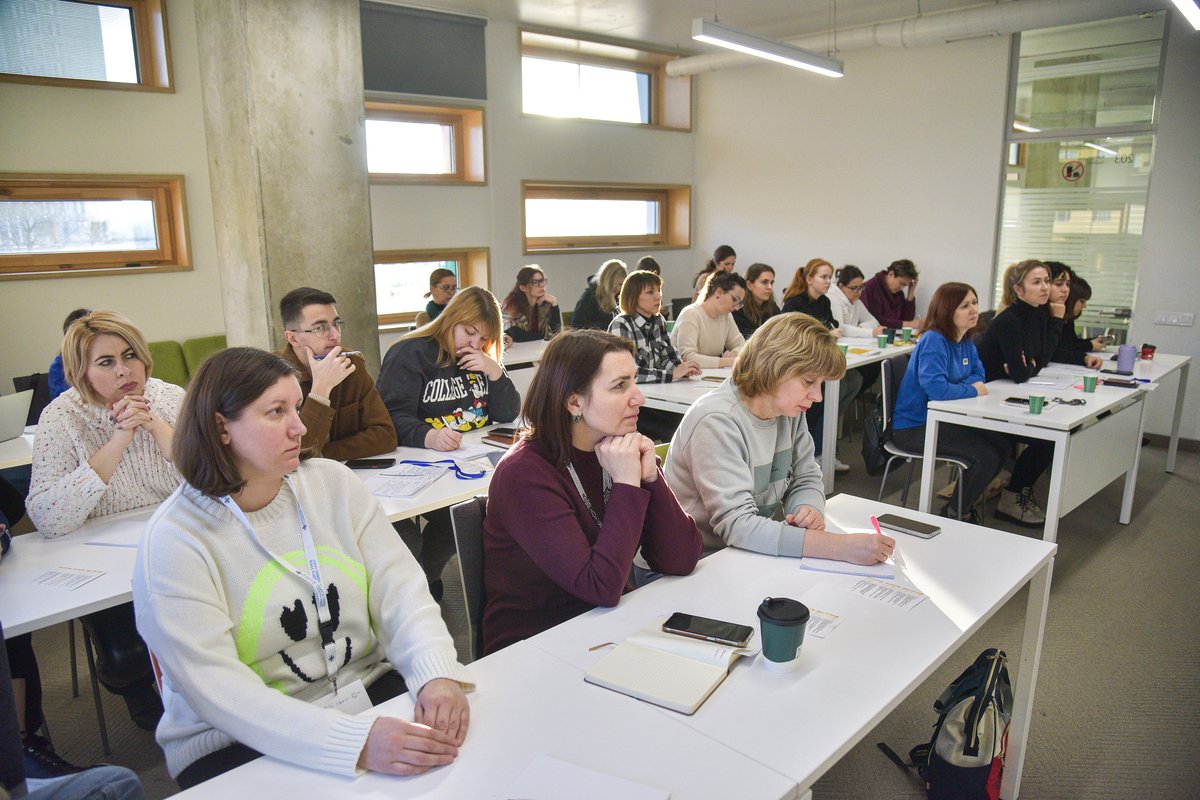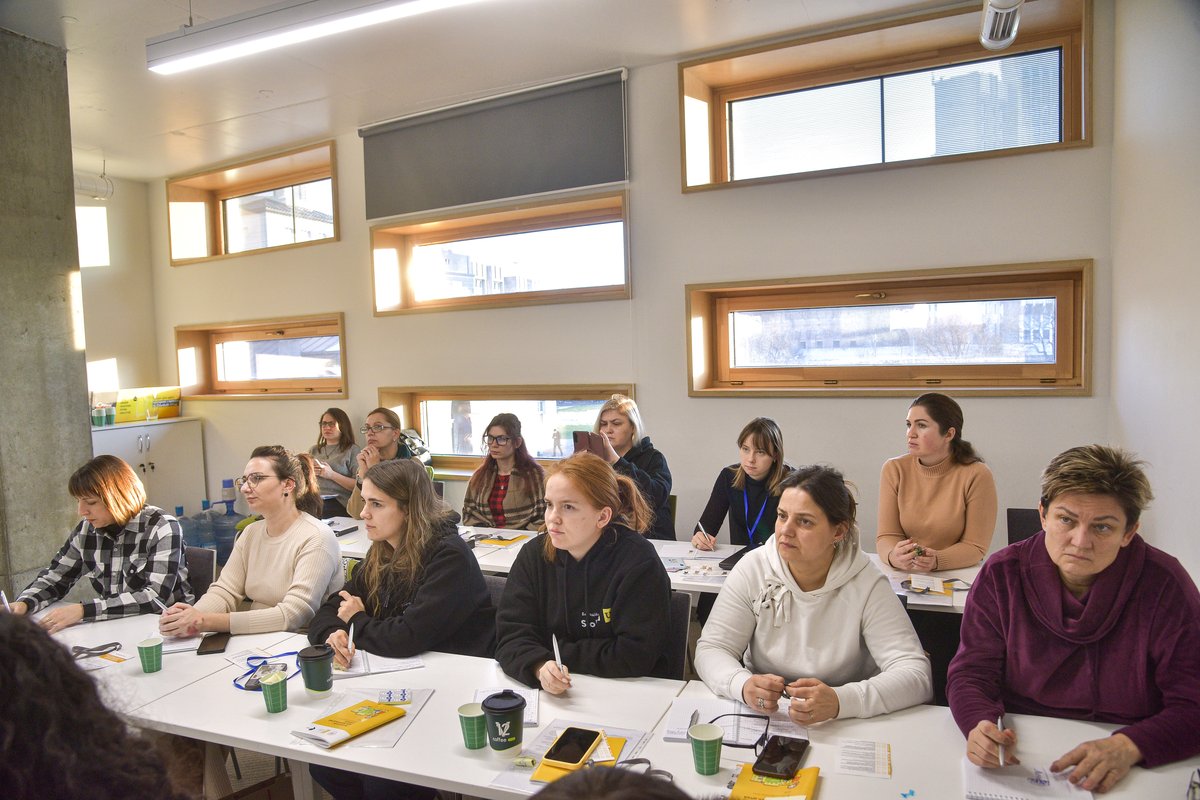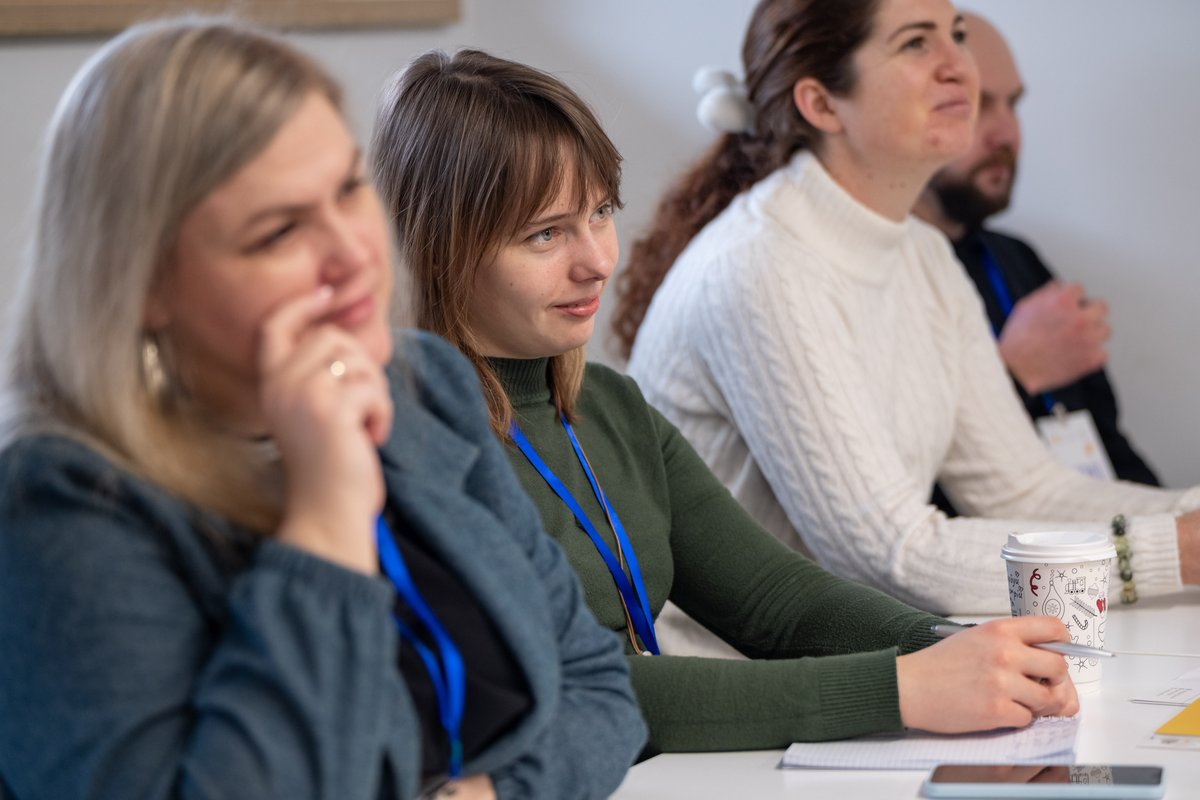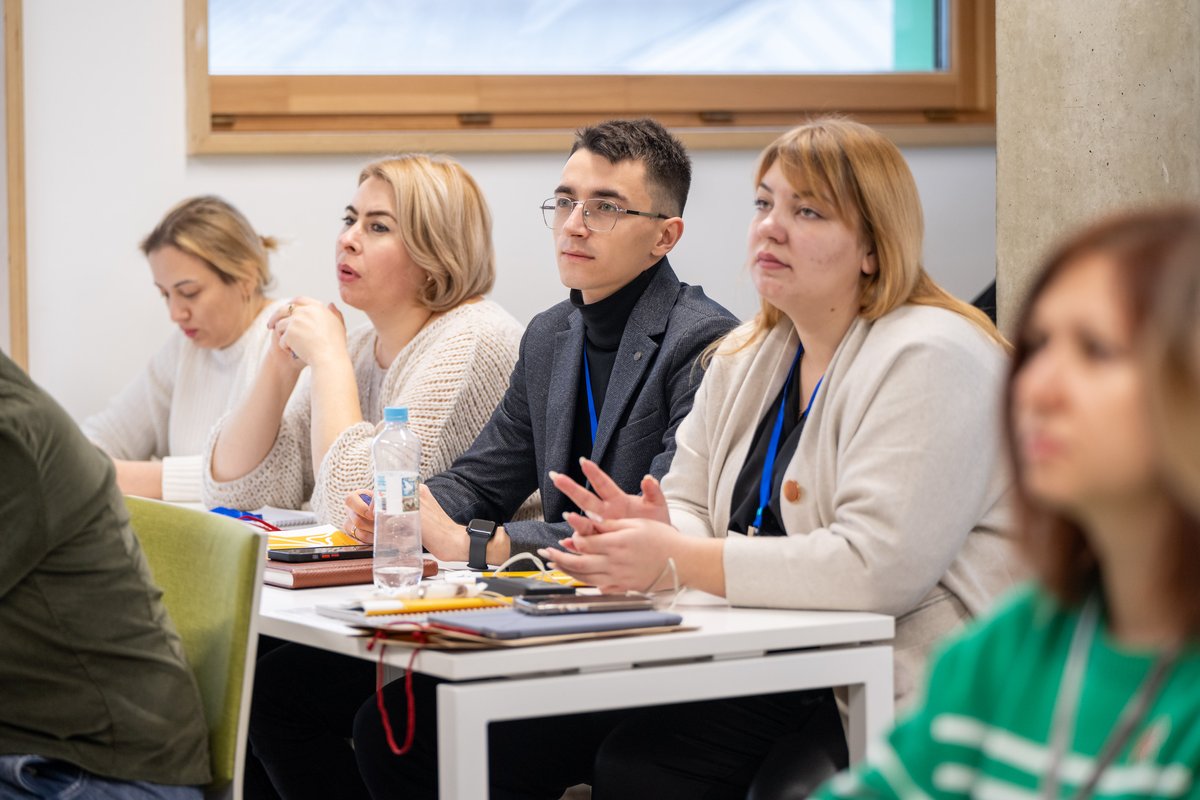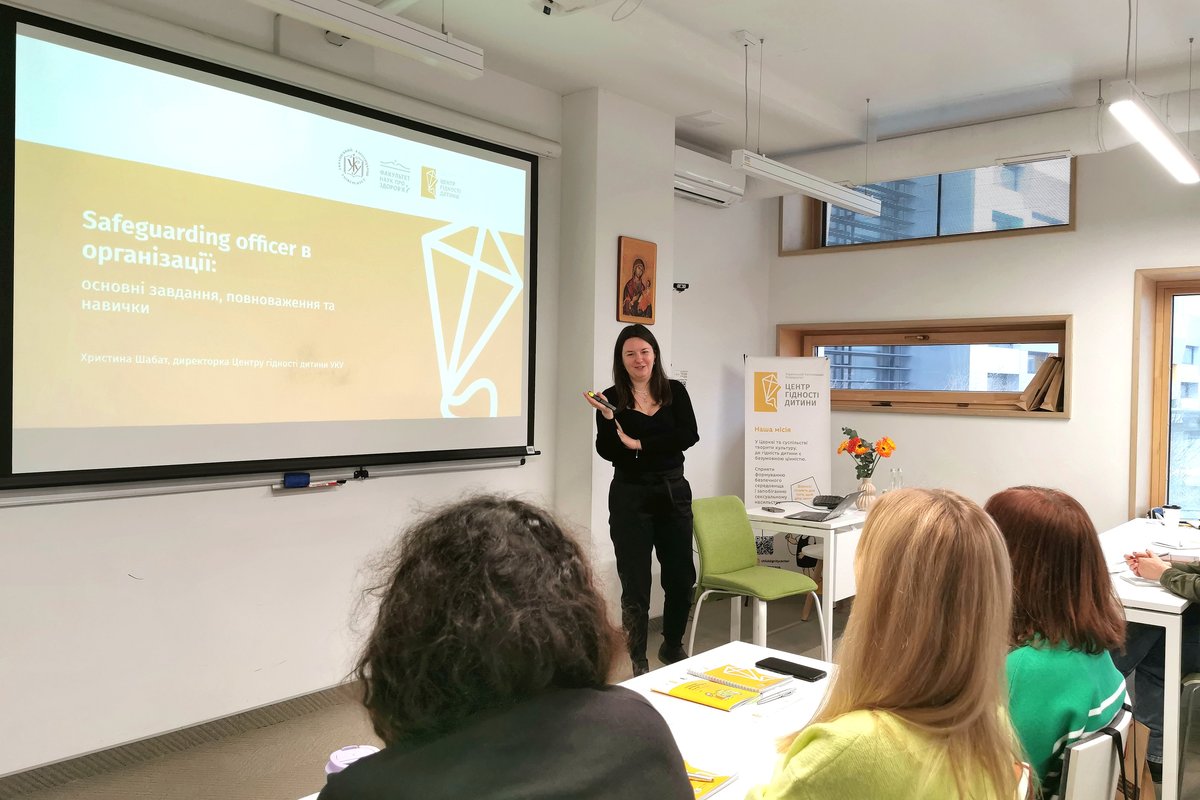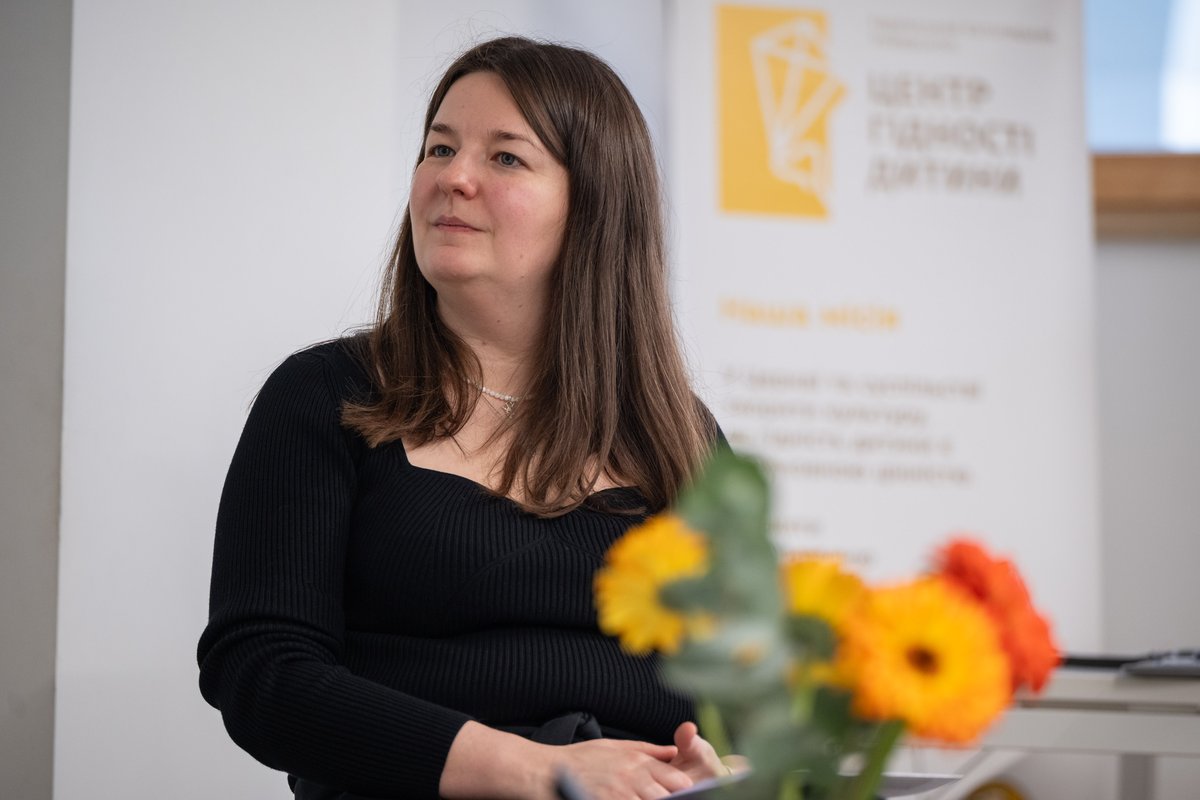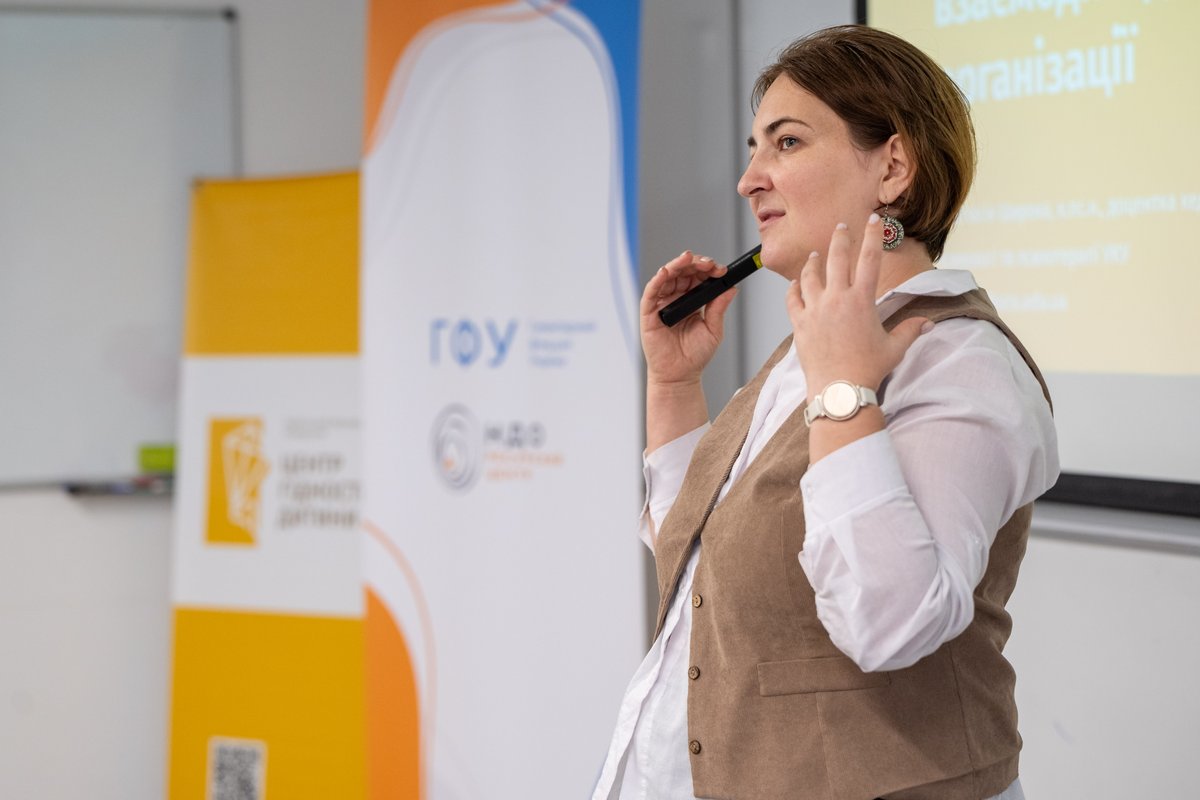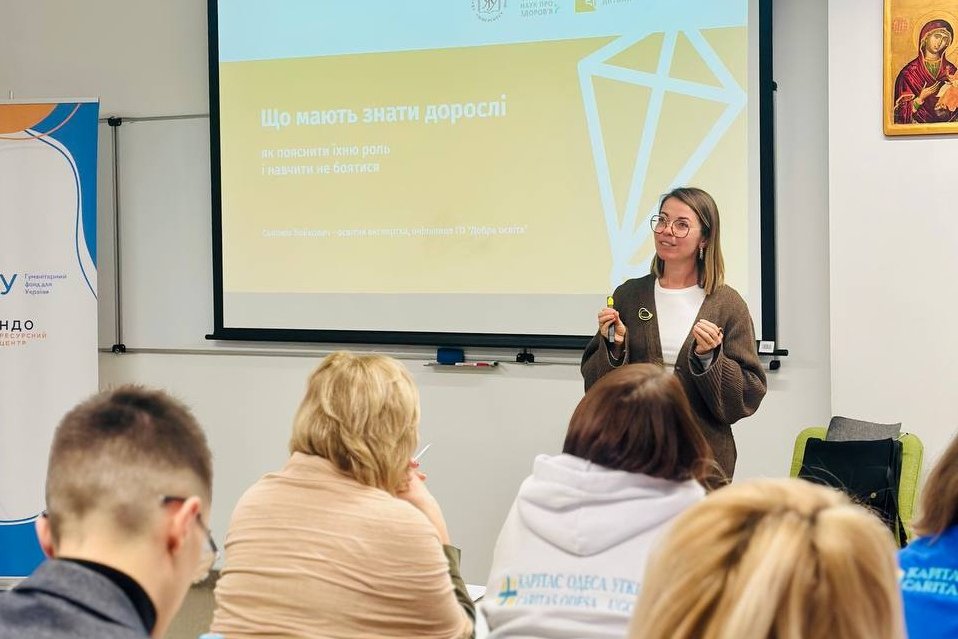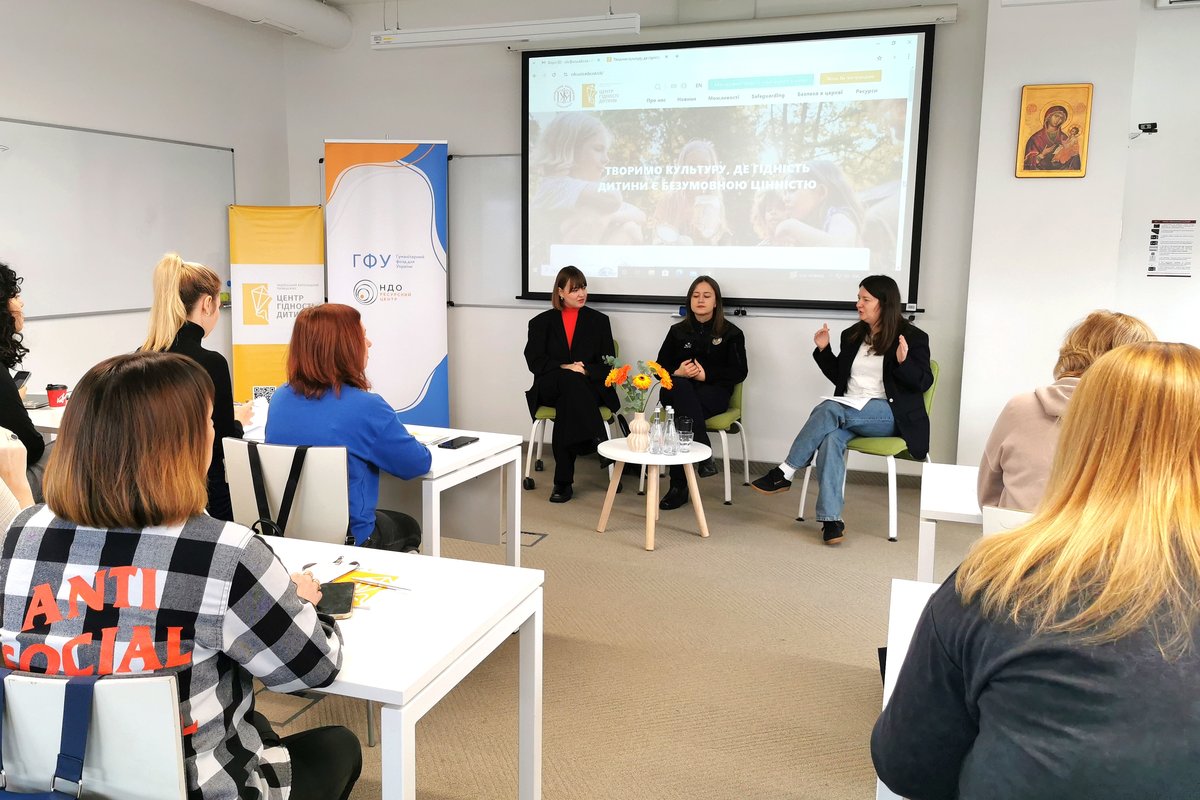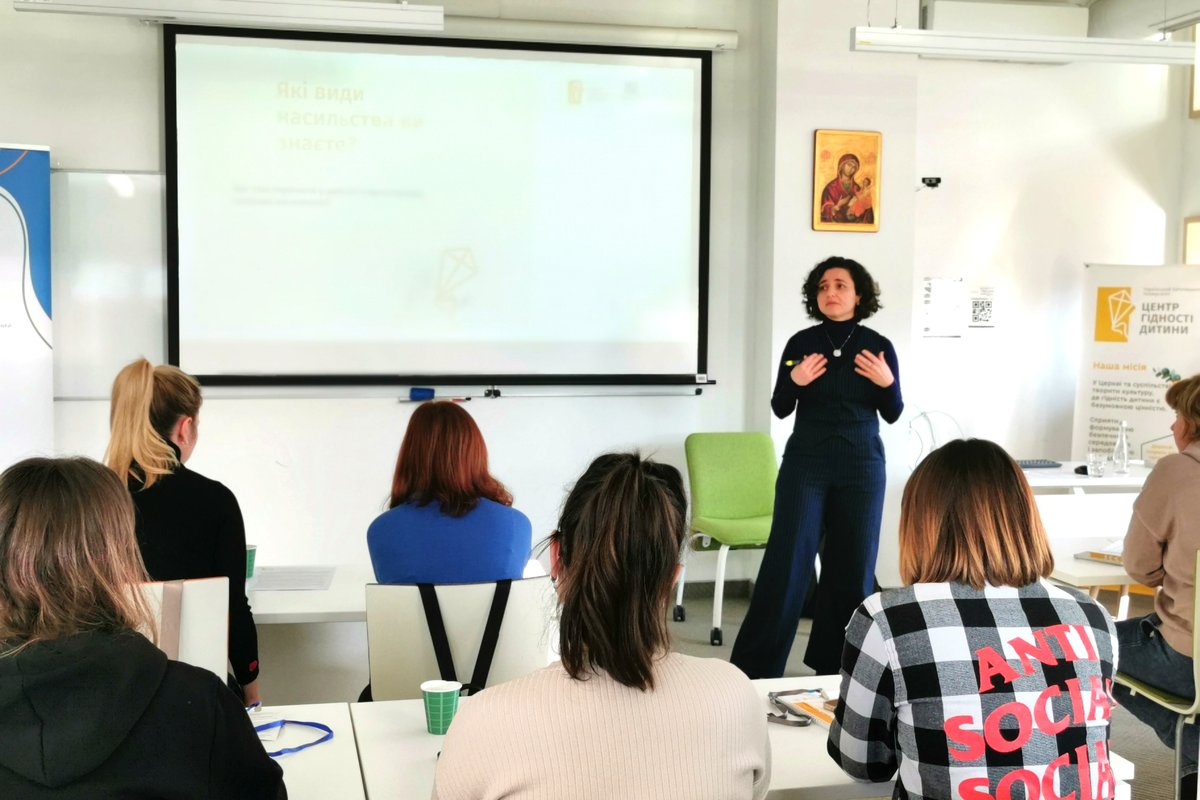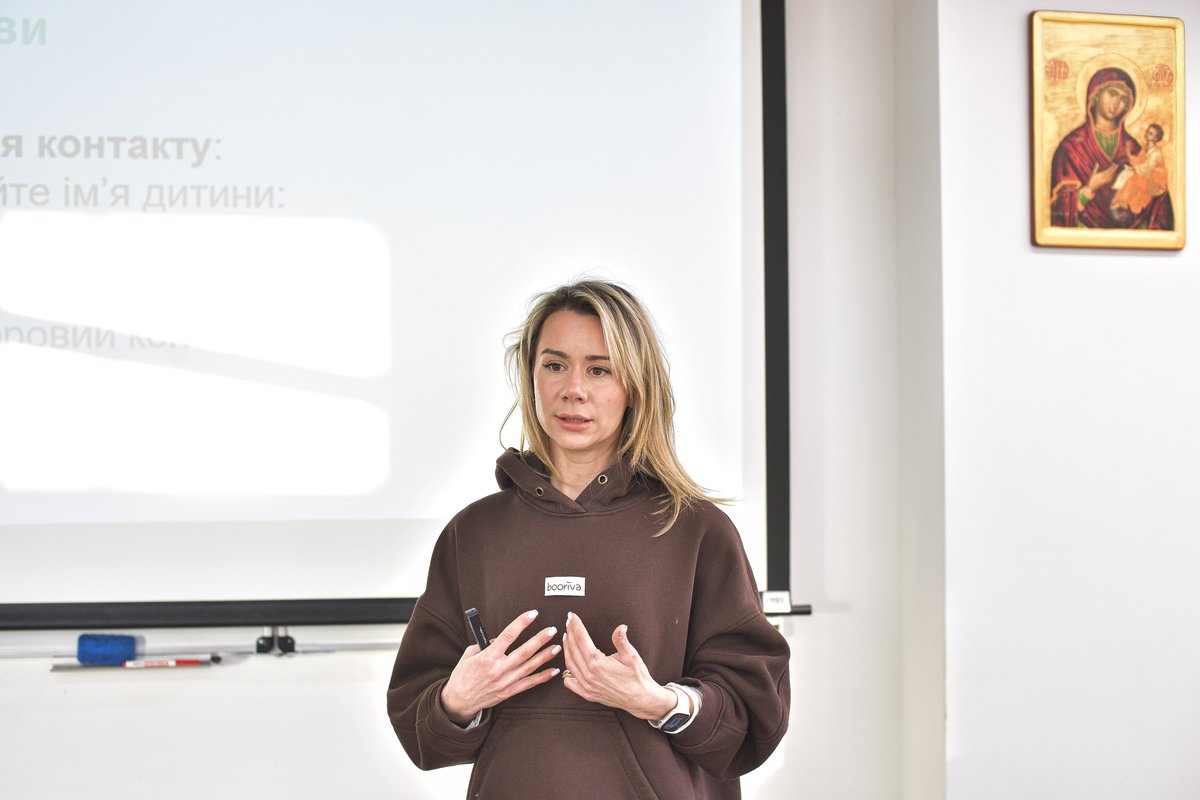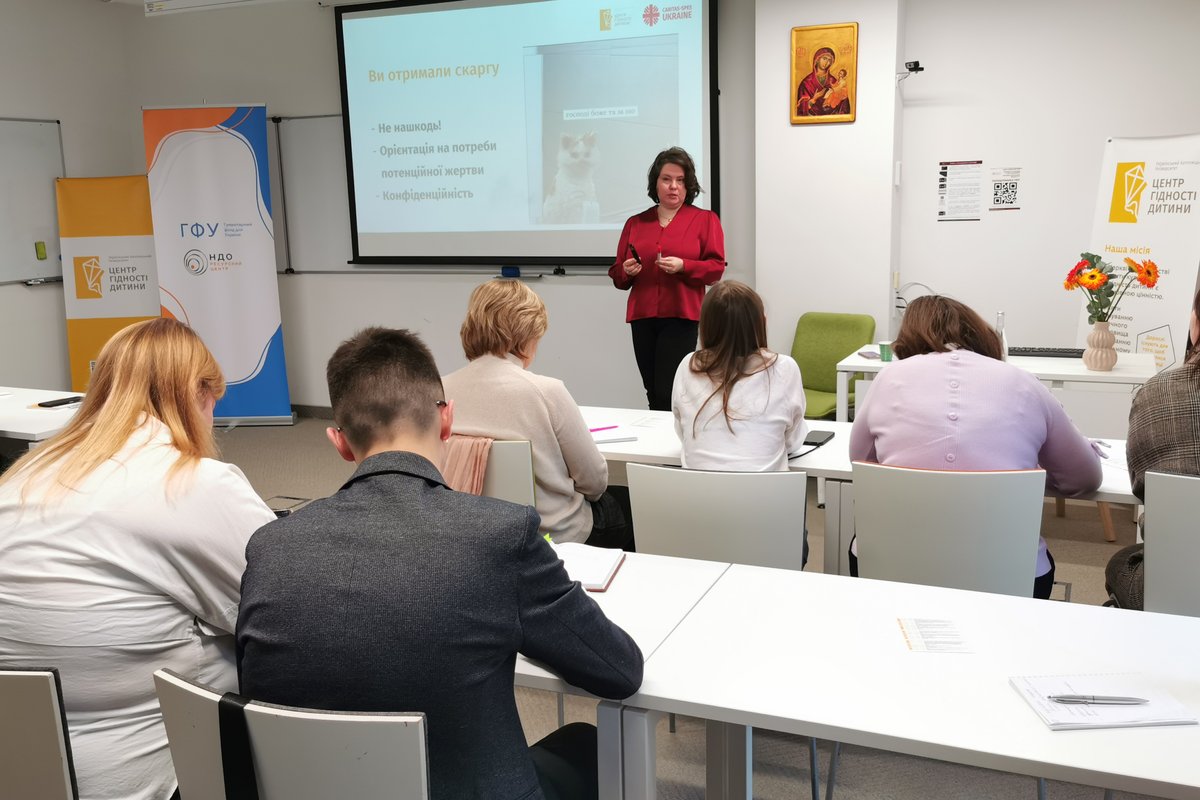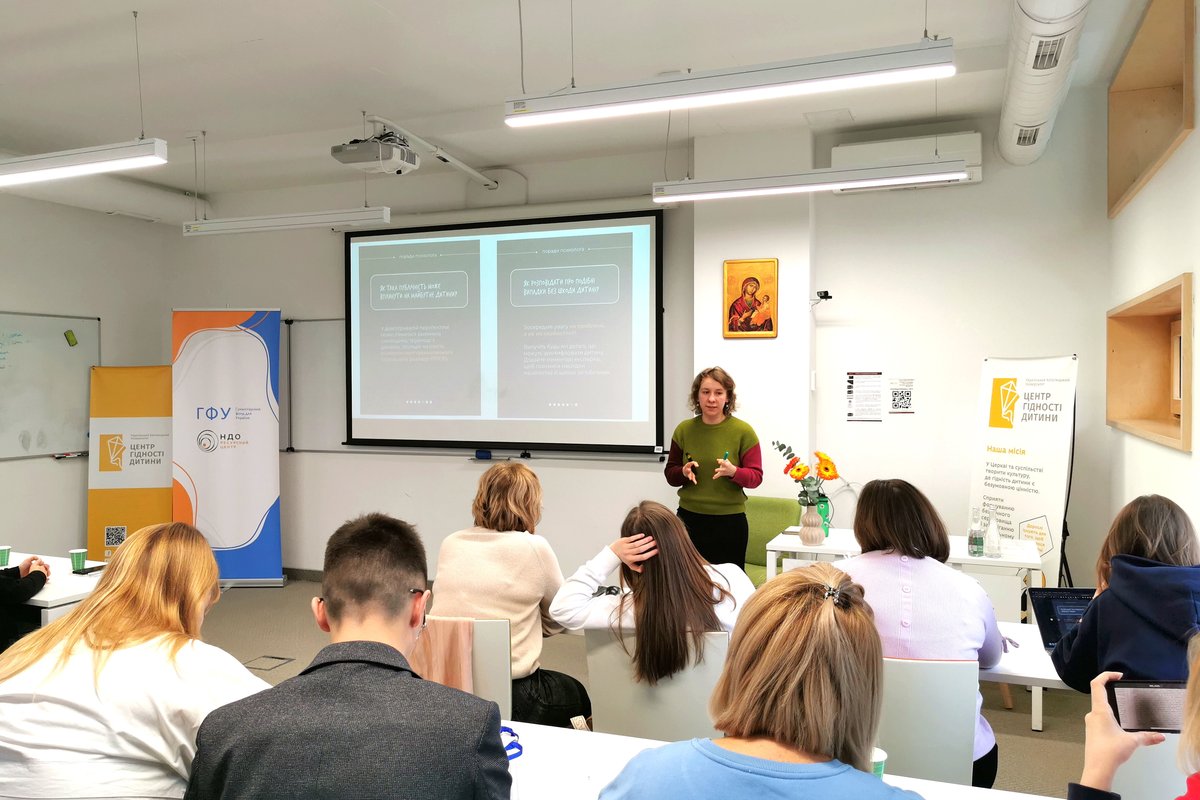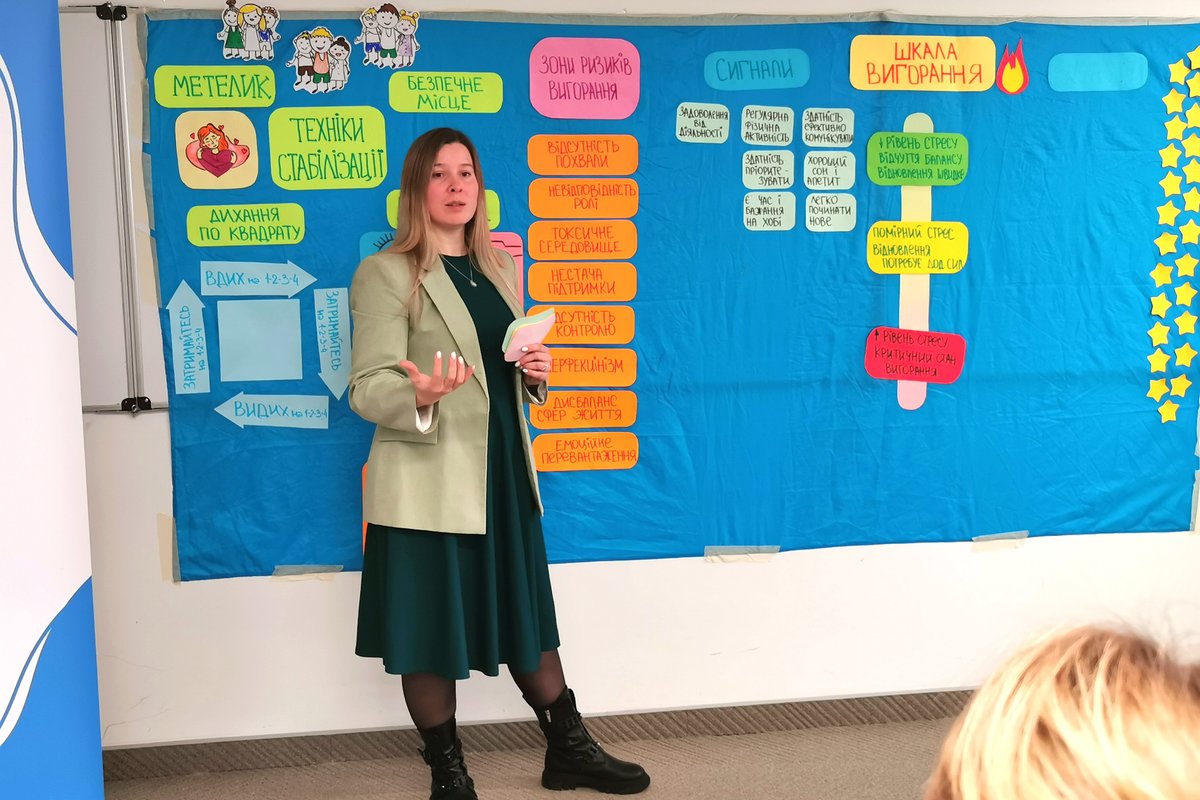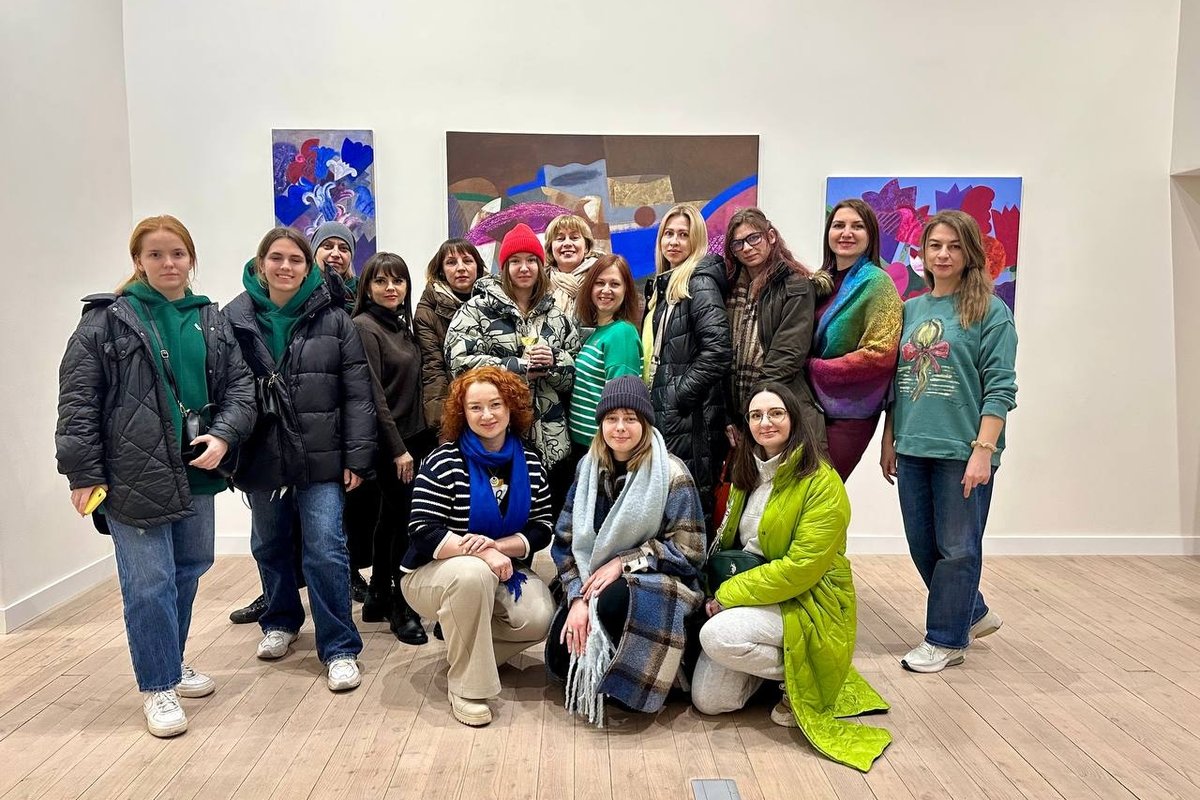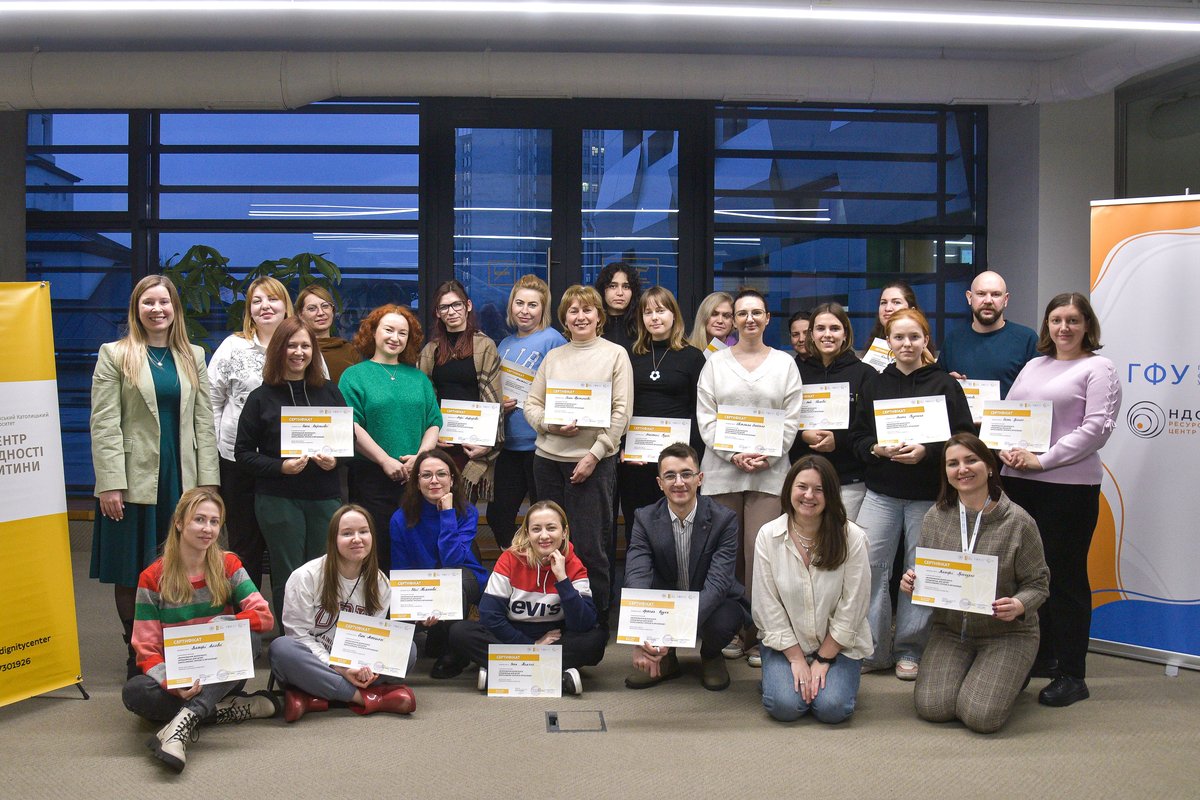The Child Dignity Center of UCU conducted training for safeguarding coordinators
From January 22 to 24, 25 participants from public organizations in Odesa, Kharkiv, Zaporizhzhia, Dnipro, Mykolaiv, Kherson, and Kryvyi Rih attended a three-day training as part of the certification program "Creating a Safe Environment for Children. Safeguarding Officer in an Organization." The training was organized by the Child Dignity Center of the Ukrainian Catholic University in partnership with the NGO Resource Center (NGORC).
The participants of the certification program work in organizations across southern and eastern Ukraine. They are involved in psychosocial support and assistance to families with children, internally displaced persons, lead educational projects, assist children from deoccupied territories, work with children with special needs, coordinate the activities of day centers and shelters, provide psychological support in mobile teams, offer social and legal support to children, work with families of military personnel, conduct awareness campaigns, and organize sports and various activities for children.
The Safeguarding Officer in an organization receives and responds to reports of inappropriate behavior toward a child. These reports can come from the children themselves, colleagues, or beneficiaries of the organization. The responsible person reviews each report and responds in a sensitive manner, and if necessary, refers the case to the appropriate services for professional assistance.
The Head of the Child Dignity Center, Khrystyna Shabat, shared: "The new educational program is aimed at training safeguarding officers who will directly implement policies within their institutions. Every organization involved with children must have someone responsible for safety and the relevant policies to create a safe environment."
The program "Creating a Safe Environment for Children. Safeguarding Officer in an Organization" was approved by the Academic Council of the Faculty of Health Sciences at the Ukrainian Catholic University and is designed for 45 academic hours, equivalent to 1.5 ECTS credits.
The three days were filled with lectures, group work, and discussions on important topics during panel discussions. Social activists had the opportunity to dive both theoretically and practically into topics such as prevention, sensitive response, and the basics of psycho-emotional support for children and themselves.
The training began with lectures by Khrystyna Shabat about who a safeguarding officer is in an organization, what the main tasks and responsibilities of this person are, and how through training of both adults and children, as well as safe recruitment, one can prevent threats to child safety. Additionally, the training covered how to effectively respond if an abuse case occurs.
Participants also had the opportunity to take part in a panel discussion titled "What children need to know about personal safety and how to talk to them about it," featuring Svітlana Kogut, Doctor of Pedagogical Sciences and Dean of the Faculty of Health Sciences at UCU, Svітlana Kіsіlyova, Head of Social and Behavioral Change Programs at UNICEF, and Yuliana Maslak, Child Psychiatrist, Psychotherapist, and Lecturer of the Master's Program in Clinical Psychology with a focus on Cognitive-Behavioral Therapy at UCU.
The Center for Child Dignity brought together experts from various fields to discuss, from different perspectives, at what age it is appropriate to talk to children about personal safety, and how parents and educators can approach this topic. The discussion covered how children perceive and absorb this information, depending on their age and psycho-emotional development, what rules should be taught, and the best ways to deliver this information—whether through conversations, books, or visual aids.
Anastasia Shyroka, a psychologist and associate professor at the Department of Psychology and Psychotherapy, Faculty of Health Sciences at UCU, shared the principles of trauma-sensitive interaction between adults and children. These principles help adults consider the likelihood of a child having experienced trauma and reduce its impact on learning and relationships. The adult consciously fosters trust, establishes rules for interaction between children, and provides the child with the opportunity to express their opinions and make choices.
Solomiya Boykovych, a UNICEF expert on early childhood education, organized group work focused on the following issues: the challenges in communicating children's personal safety, factors that influence the effective transmission of safety rules in educational institutions, and how to avoid distorting or oversimplifying the delivery of information about sexual education, while maintaining its accessibility for children.
The second day of the program began with a panel discussion titled "The Child Protection System in Ukrainian Legislation," featuring Yuliya Nikitina, coordinator of the legal aid hotline "YurFem: Support," and Olga Kovalchuk, a police major and head of the juvenile prevention sector at the Preventive Activities Department of the Main Directorate of the National Police in the Lviv region. They discussed the response algorithm for cases of child abuse and inter-agency cooperation.
The participants of the program discussed the types of abuse, its signs, and the emotional and behavioral reactions to traumatic events with psychotherapist Maria Oliynyk.
Later, participants discussed the principles of working with survivors, how to communicate with a child when reporting abuse cases, and practiced these skills during a workshop with child psychiatrist and psychotherapist Yulianna Maslak. The practical exercise helped participants better understand how to conduct a conversation with a child who has experienced abuse and how not to approach it.
The third day of the certification program was filled with practical sessions. Together with Anzhelika Stakhovska, head of the Organizational Development and Compliance Department at Caritas-Spes Ukraine, participants discussed mechanisms for receiving feedback and complaints, as well as when and how administrative investigations can be conducted within an organization. They also reviewed specific cases of complaints.
Crisis communication skills were trained with Veronika Savruk, head of the Information and Marketing Department at UCU. Psychologist Anna Oleksyn helped participants understand how to remain calm in stressful situations and take care of their own emotional recovery.
An important part of the training is providing emotional and psychological relief for the participants. Often, their work is connected to threats, losses, and their consequences. Therefore, the head of projects and programs at the Child Dignity Center, Natalia Tarnovska, who is responsible for organizing the certification program, included activities such as visiting a gallery or museum. As a result, the community leaders visited the painting exhibition of Volodymyr Bohuslavskyi at the "Shum" gallery.
As part of the certification program, participants will work on creating an annual work plan for the safeguarding officer and conduct safeguarding training for employees in their organizations. We believe the knowledge gained will be valuable and help build a prevention system in organizations, contributing to the creation of a safe environment for children.
We are grateful to all participants for their fruitful collaboration and to our partners at the NGO Resource Center for their quality cooperation.
“Organizations working with children should undergo such training because it allows them to apply the knowledge gained in practice. People working in NGOs may never have interacted with children before, and they might not recognize the warning signs. Training gives them the opportunity to realize their own responsibility and work in the best interest of children,” shares her impressions of the program participation, Viktoriya Aliyeva, a psychologist with the mobile team of the charity foundation "Vityry Zmin."
Photo credits: Ivan Stanislavskyi and Vitalii Hrabar.
